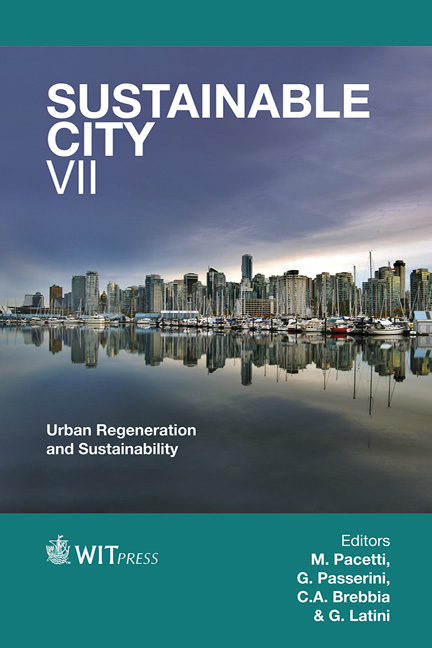Developing A New Authenticity Rating System On Architectural Conservation
Price
Free (open access)
Transaction
Volume
155
Pages
10
Page Range
1235 - 1244
Published
2012
Size
689 kb
Paper DOI
10.2495/SC121032
Copyright
WIT Press
Author(s)
M. Ulukan, H. Arslan
Abstract
Authenticity is one of the main phenomena of architectural conservation. At first glance it refers to the emphasizing of fidelity, originality and sincerity to the origin of historic buildings, sites or objects. This notion is a common subject of argument in the interpretation of historic buildings and sites which involves experts of the architectural conservation council. Cognoscenti are bound to decide for the difficult resolution of authenticities of historic fabrics relating to their knowledge and experience. The question about the authenticity of a historic fabric can be answered whether it is authentic or not, but this does not give an idea about the level that is “how much”. The answer relies on the experts’ perceptions and while one may say “very good, authentic” the others may say “not authentic” for the same historic building. This shows a lack of clarity and certainty. In this study, a new ranking system has been developed to interpret the unequal results of deterioration of historic buildings and their authenticity levels by the use of “fuzzy logic” sets. A fuzzy logic model evaluates historic buildings according to the question of “how much”. Although numerical categorization sets forward sharp and mutually exclusive classes according to classical Aristotelian logic, “fuzzy logic” includes mutually inclusive classes. Fuzzy logic operators provide a formal method of manipulating linguistic variables. The usage of fuzzy logic in this system provides a comparative analysis of different conservation states of historic buildings to go through and accurate restoration works according to authenticity ratings. This study proposes objective decisions that can be interrogated and reconsidered on the authenticity of a monument rating model to evaluate the degree of authenticity of historic buildings and sites. This logical fuzzy model provides an easy tool to take reliable results. The model was briefly explained with working principles and formulations through advantageous and disadvantageous aspects.
Keywords
authenticity, cultural heritage conservation, restoration, fuzzy logic.





